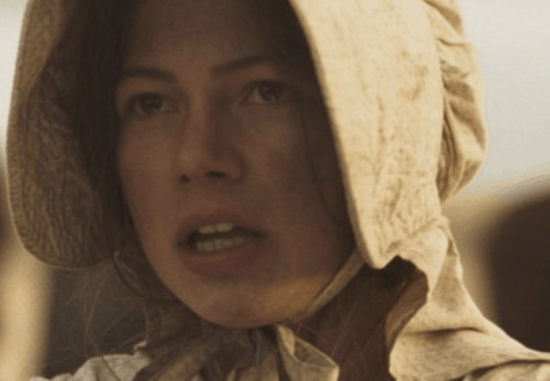Living in the West has peaked my interest in the women who came across our country in wagon trains, and my curiosity about their lives drew me to the movie Meek’s Cutoff. It is the story of a small group of westward-ho adventurers who wander, lost in the Oregon desert in 1845, searching for water.
The movie is more realistic than previous movies about wagon trains, partly because it is based on a historical incident. It also presents a woman’s viewpoint, that of Kelly Reichardt, the director. The scenes of nighttime are pitch black, the campfire punctuating conversation periodically with the glimpse of a cheek, a shirt shoulder, or a hat brim. The scenes of daytime are filled with drudgery, boredom, and dirt. Dust settles on the women’s skirt hems, facial wrinkles, even hair covered by bonnets.
 |
| (from Photl.com) |
Toward the end of the journey the women are so dirty that their hands have turned black. Those black hands represent to me all the hands of all the women through the ages who engaged in menial labor: the farmers’ wives who toiled in the fields beside their husbands (and still cooked and kept a clean house); the women who helped their husbands in tanneries, granaries, and fisheries; those who assisted their husbands in birthing animals, performing surgery and printing newspapers; those who existed on their own, growing and butchering food, curing meat, preserving vegetables, taking the horse-drawn wagon to town.
Those black hands are the hands of women of every color and hue who labored. The hands that baked the bread also toiled wherever assistance was required—and many still do. Black hands. Women’s hands not afraid of dirt or hardship. Women who stand beside men. Women who stand alone.

